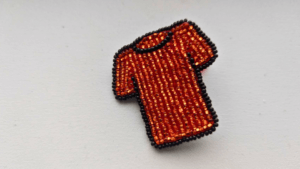On September 30, 2023, Canada marks the fourth National Day for Truth and Reconciliation, also known as #OrangeShirtDay. This day honours First Nations, Inuit, and Métis Survivors of residential schools, as well as the children who never returned home, and their families and communities. This is a reminder that while this is only the fourth National Day for Truth and Reconciliation, the work of reconciliation has been ongoing for much longer. It serves as a reminder the importance of extending reconciliation into every aspect of society, especially healthcare, where deep inequities still exist.

For us, reconciliation means supporting the revitalization and reaffirmation of Indigenous languages, lands, and human rights within health care by amplifying these stories and experiences. We focus on reimagining relationships between Indigenous and non-Indigenous peoples, governments, and health organizations through meaningful partnerships that foster systemic change. Our aim is to uplift and share the strength and resilience of Indigenous communities.
This work is vital as many health care organizations begin to reckon with their own roles in perpetuating inequities. On September 18, 2024, the Canadian Medical Association (CMA) issued a formal apology for its past and ongoing harms to First Nations, Inuit, and Métis Peoples in the healthcare system. As part of its apology, the CMA committed to advancing Indigenous health by revising its ethics codes, increasing Indigenous representation in medicine, and supporting physicians in the work of reconciliation.
At the provincial level, Doctors of BC, alongside many other medical associations, participated in the event and issued their own commitment to action. Doctors of BC is developing a Truth & Reconciliation plan in collaboration with Indigenous leaders and is working through the Joint Collaborative Committees (JCC) to provide opportunities for physicians to learn and share the truth about Canada’s oppression of Indigenous peoples.
At RCCbc we strive to actively contribute to the reconciliation process, in alignment with the Joint Standing Committee on Rural Issues and the JCCs. Our initiatives and projects collaborate in a relational way with First Nations and Métis communities spread across the province, each with its own specific contexts and strengths.
For us, reconciliation means supporting Indigenous self-governance and self-determination in shaping societal structures, including healthcare systems. It involves revitalizing and reaffirming Indigenous languages, lands, and human rights within Canada’s legal frameworks. Reconciliation also calls for reimagining and fostering new relationships—between individuals, communities, organizations, governments, and Indigenous nations.
As we reflect on this year’s National Day for Truth and Reconciliation, we hold out our hand to walk alongside any and all health care professionals to join us in this journey of learning, reflection, and meaningful action. Reconciliation must be an ongoing process, and the responsibility lies with all of us.
As we deepen our own understanding of Indigenous communities and the journey towards truth and reconciliation, we offer these resources that we have been exploring
- Truth and Reconciliation Commission of Canada: Calls to Action
- Watch this video: Reconciliation: What does it mean?
- Orange Shirt Society
- RCCbc’s Commitment to Reconciliation: Find resources to support your reconciliation work and read more about Indigenous-led Health Initiatives at RCCbc
- Compassionate Leadership Course: The Compassionate Leadership Community of Practice and its training program is led by Shawn and Heather Atleo. In sharing their teachings, Team Atleo hopes to inspire curiosity and spark interest in the value and practical application of Compassionate Leadership in the health care system. Read their achievements last year.
- UBC Learning Circle, provides educational and informational opportunities to health care workers and professionals in First Nations communities
- Native Land, a living resource to help identify territories, languages, and treaties
- First Voices: web-based tools and services designed to support Indigenous people engaged in language archiving, language teaching and culture revitalization
- University of Alberta’s Faculty of Native Studies is offering a free online course on Indigenous Canada.
- Support is available 24 hours through the Indian Residential School Survivors Society (IRSSS) toll-free crisis line at 1-800-721-0066.


